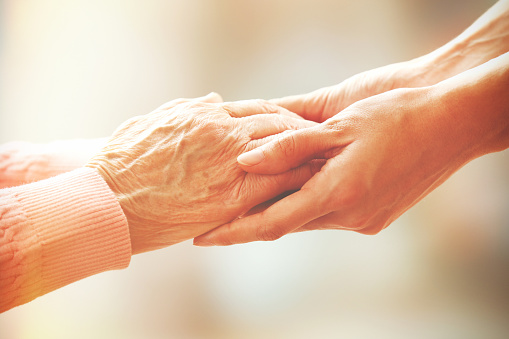
If there is a modern mystic channeling Dylan Thomas’ famous poem “Do Not Go Gentle Into that Good Night,” it would be Ashton Applewhite.
The excitable New York writer and scholar is rattling the cages of ageism to counter prevailing attitudes that older adults are unhappy, unproductive, or even worthless.
Her December talk “This Chair Rocks” at a Columbia University aging conference of journalists and academics is Applewhite’s punchy counter-assault against everything ageist: a media landscape barren of “olders,” common shibboleths that growing old inevitably has to be awful, and a youth-oriented society entranced with staying young while denying both the aging process, and the aged.
The first step in culture change, she says, is waking people up.
“Most people cannot even define ageism,” sighs Applewhite. “They don’t have any sense how they’ve internalized these views.”
In fact, Applewhite experienced ageism at that very Columbia conference – “The Politics of Aging: Now What?”
“The opening speakers were saying things like ‘You can’t mention how long David and I have been friends’ and ‘Unlike everyone else here I’m the only one at this conference not aging.”
Applewhite – who is 60 – was shocked.
“How can you be in the field of aging and not understand that comments like that betray a profound ambivalence to your own aging?” asks Applewhite. “Why is it so hard to galvanize a national discourse on aging? Hello! It’s because of people like you.”
Since September, Applewhite has encouraged readers of her blog “This Chair Rocks” to cheer up and fight back, because most people are woefully misinformed about the aging process and how great it can actually be.
“It is going to be better than you think,” says Applewhite. “In part because we think it’s going to be unmitigated misery.”
Applewhite cites statistics that counter two of the biggest fears we have about aging: living independently, and neurodegenerative diseases like Alzheimer’s or Parkinson’s.
In fact, only a scant 4 percent of older adults today live in nursing homes, says Applewhite – down a percentage point from a decade ago.
Similarly, neurodegenerative diseases are becoming more common largely because humans are living longer.
“The epidemic of anxiety about memory loss is out of proportion with reality,” she says. “Seven out of eight brains will hang in there just fine.”
Echoing the words of Laura Carstensen, director of the Stanford Center on Longevity, Applewhite says that the horrors of aging are wildly overstated, and cites extensive research about the U-Shaped Happiness Curve – that humans are actually at their most joyful when they are very young, and very old.
“There is study after study after study that shows people are happiest at the beginning and ends of their lives,” she says. “The awareness that time is short allows people to use time more wisely and live in the moment.”
Applewhite says ageism is rampant not only among younger generations, but older adults. While fears about aging are creating pathological behaviors in mid-life –including rampant plastic surgery and youth-reclaiming miracle drugs – even older adults play the game.
She recounts the tale of a 30-something geriatrician – physicians specially trained to treat the complex health needs of older adults – admonished by a patient’s wife who accused the doctor of being “too young to understand.”
“So ageism cuts both ways,” says Applewhite, who also authors the blog “Yo Is This Ageist?” where she answers queries from readers. “Ageism really starts to mess with us and distort our life.”
The solution, she adds, is simple.
“We need to become ‘old people in training,’” she says, borrowing a phrase from geriatrician Joanne Lynn. “When we become an older person in training we bridge the gap between our future self and our present self.”
Applewhite is a long-time journalist and author of the book “Cutting Loose: Why Women Who End Their Marriages Do So Well.” She entered the aging field while working on a book about adults 80 and over who were still working. But she found the sample group too narrow to adequately address the much bigger canvas of ageism, and followed Thomas’ poem to “rage, rage against the dying of the light.”
She has future bookings at prestigious venues like the city’s famed Cooper Union and professional settings like Cornell University’s division of geriatrics and gerontology.
The talk’s new subtitle: “How Ageism Warps Our View of Longer Lives.”
In truth, she says, older adults are far from the tired, frail, unproductive seniors depicted in popular culture.
“They are incredibly engaged in the world and doing cool stuff.”
Applewhite’s mission is to continue spreading this gospel and forcing us to face our own ambivalence about aging.
“Most people desperately want to grow old – because we don’t want to die – but are terrified of it at the same time,” says Applewhite. “The way we age has such a profound effect on that experience.”





